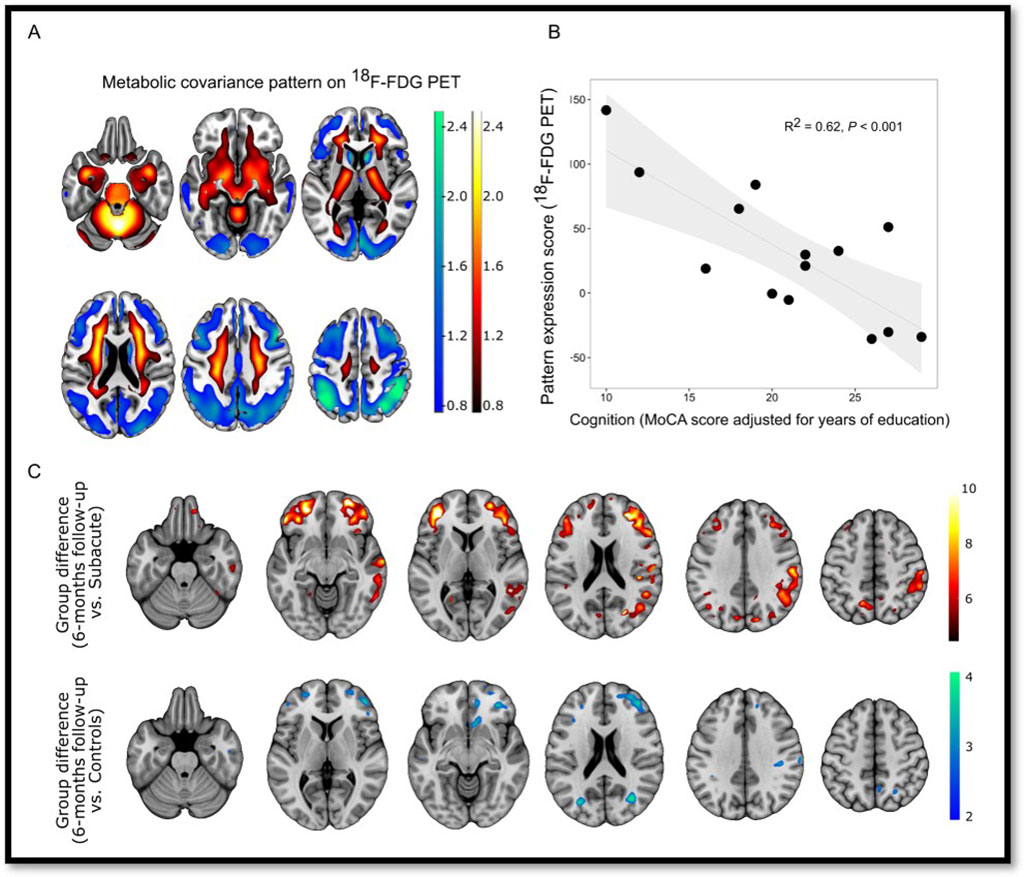PET Imaging Can Accurately Measure Cognitive Impairment in COVID-19 Patients
By MedImaging International staff writers
Posted on 18 Jun 2021
The effects of COVID-19 on the brain can be accurately measured with positron emission tomography (PET), according to research presented at the Society of Nuclear Medicine and Molecular Imaging (SNMMI) 2021 Annual Meeting.Posted on 18 Jun 2021
In the study conducted by researchers at the University Medical Center Freiburg (Freiburg, Germany), newly diagnosed COVID-19 patients, who required inpatient treatment and underwent PET brain scans, were found to have deficits in neuronal function and accompanying cognitive impairment, and in some, this impairment continued six months after their diagnosis. The detailed depiction of areas of cognitive impairment, neurological symptoms and comparison of impairment over a six-month time frame has been selected as SNMMI’s 2021 Image of the Year.

Image: PET Imaging Can Accurately Measure Cognitive Impairment in COVID-19 Patients(Photo courtesy of G Blazhenets et al., Department of Nuclear Medicine, Medical Center – University of Freiburg, Faculty of Medicine, University of Freiburg)
To study cognitive impairment associated with COVID-19, the researchers carried out a prospective study on recently diagnosed COVID-19 patients who required inpatient treatment for non-neurological complaints. A cognitive assessment was performed, followed by imaging with 18F-FDG PET if at least two new neurological symptoms were present. By comparing COVID-19 patients to controls, the researchers established a COVID-19-related covariance pattern of brain metabolism with most prominent decreases in cortical regions. Across patients, the expression of this pattern showed a very high correlation with the patients’ cognitive performance. Follow-up PET imaging was performed six months after the initial COVID-19 diagnosis. Imaging results showed a significant improvement in the neurocognitive deficits in most patients, accompanied by an almost complete normalization of the brain metabolism.
“We can clearly state that a significant recovery of regional neuronal function and cognition occurs for most COVID-19 patients based on the results of this study. However, it is important to recognize the evidence of longer-lasting deficits in neuronal function and accompanying cognitive deficits is still measurable in some patients six months after manifestation of disease,” said Ganna Blazhenets, PhD, a post-doctoral researcher in Medical Imaging at the University Medical Center Freiburg. “As a result, post-COVID-19 patients with persistent cognitive complaints should be presented to a neurologist and possibly allocated to cognitive rehabilitation programs.”
Related Links:
University Medical Center Freiburg














